The Rococo Hon Château is situated in Mlnk, near the meeting point of the Vltava and Elbe rivers. Originally used as a hunting lodge, it’s found in the village of Hon and was designed by the architect G. B. Alliprandi upon the request of Count Jakub ernn around the late 1600s. The paintings inside were crafted by F. M. Schiffer and his brother Antonn. In the early 1700s, they added a riding hall and stables to the château.
This chateau is a well-preserved gem, blending the characteristics of Late Baroque and Early Rococo styles.
Currently, the château is not open to the public.
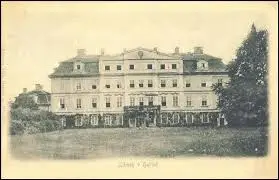

Back then, the hunting lodge wasn’t enough for its new owner, Frantiek Josef ernn. So, he had a Baroque-style chateau built in its place between 1713 and 1720, following the design by F. M. Kaka.
Over time, the chateau saw several renovations and expansions. In the mid-1700s, Carlo Giuseppe Bossi added ornate stucco to two “Stone Rooms” on the ground floor. The most recent changes happened in the late 1700s, adding a modest tympanum to the garden front and restoring an interior stairway.
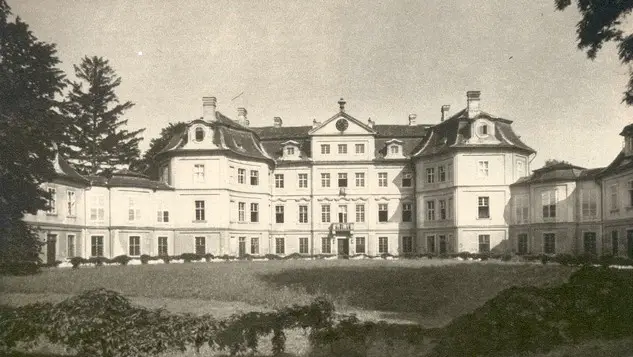
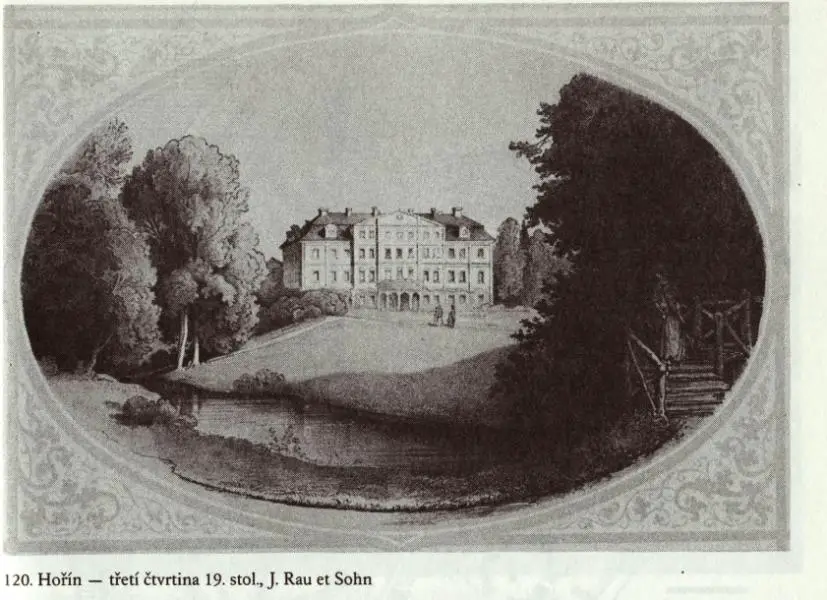
Interesting Tidbits about Hořín
Count Heman Jakub ernn initially constructed a hunting lodge in Hon. The design by Giovanni Battista Alliprandi had Baroque elements and was adorned with paintings by F. M. Schiffer.
When the chateau passed to the next owner, Frantiek Josef ernn, he wanted more comfortable living conditions that the existing hunting lodge couldn’t provide. As a result, he decided to transform the chateau into a typical Baroque residence, based on a design by Frantiek Maxmilián Kaka. This renovation took place between 1713 and 1720.
Following the death of Frantiek Josef ernn, his widow Marie Isabela married his brother Frantiek Antonn. However, the existing chateau didn’t suit him either, so they further modified it, including extensions. These changes were in progress when Frantiek Antonn passed away in 1739. In his will, he made sure that the castle’s construction would be completed as originally planned, even mentioning the castle chapel of St. Jan Nepomuck. The renovation’s architect, Jan Christian Spannbrucker, passed away in 1742 before seeing it done.
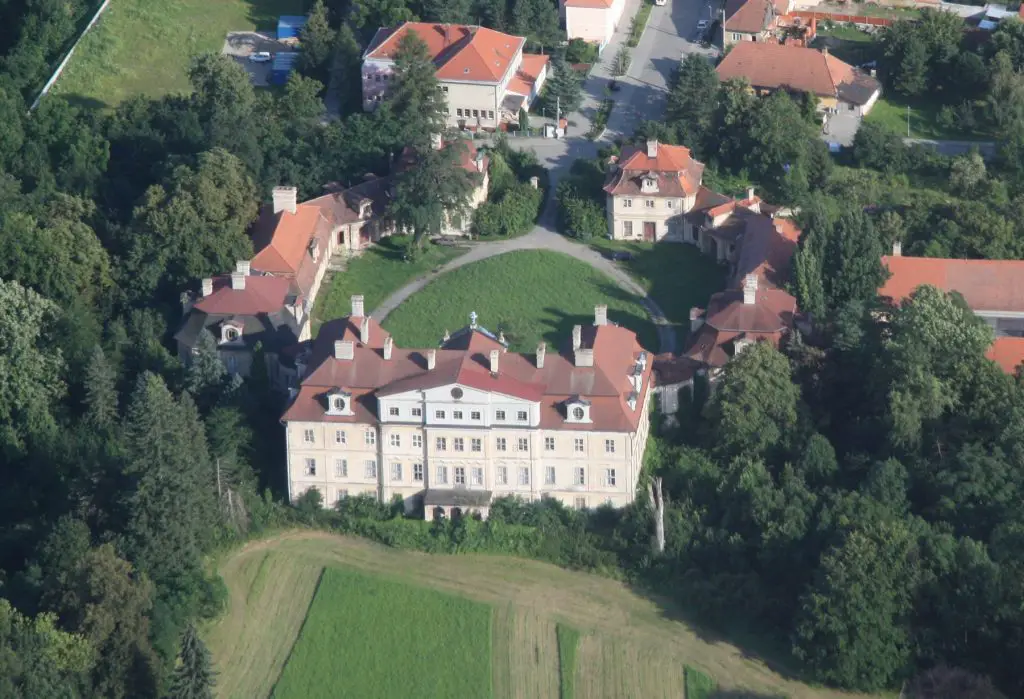
Despite this setback, construction resumed in 1744. The revamped chateau eventually became the property of Marie Ludmila, the daughter of Frantiek Antonn ernn and Marie Isabela, who married Prince August Antonn of Lobkovice. The castle was in the ownership of the Lobkovice family until 1948.
Additional changes were made to Chateau de Hon around the late 1700s, although they didn’t significantly alter the overall appearance, which beautifully combines Baroque and Rococo styles. The nearby “Stone Rooms” stand as one of Bohemia’s finest Rococo spaces.
Currently, the chateau isn’t accessible to the public due to not meeting the necessary standards. While most of the original furnishings have vanished, the façade and castle park are still worth a visit.
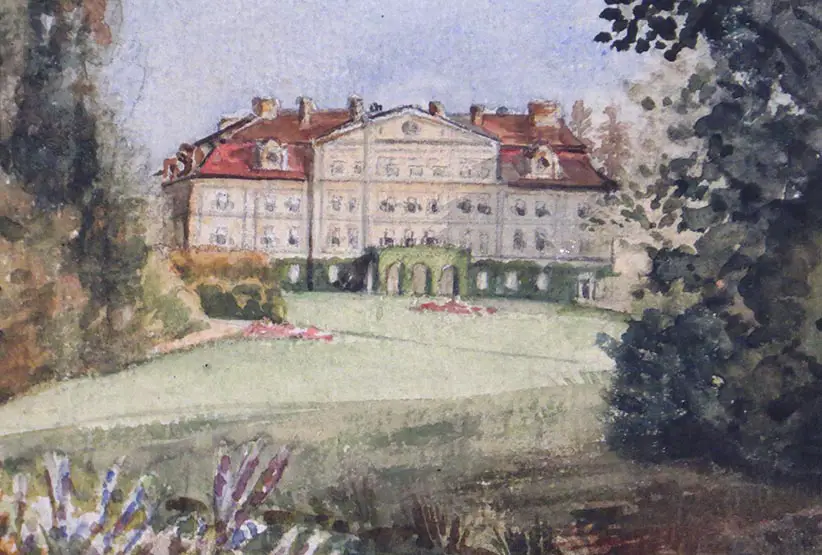
Historical Background
Towards the end of the 17th century, the ernn family had a Hunting Castle built based on the design by G. B. Alliprandi, at the site where the court of Czech queens once stood, documented in 1319. Around 1713-1720, a new castle was erected by F. M. Kaka. In 1736, J. K. Spannbrucker carried out renovations, and in 1746, he transformed it into Rococo style to align with the taste of that era. Spannbrucker added pavilions with apartments, a chapel, and other structures to the main residence, centered around the earlier Medieval castle that enclosed an elongated octagonal castle courtyard. Interior decorations were ongoing until 1763.
During this time, the Lobkovics family gained ownership of the unfinished castle.